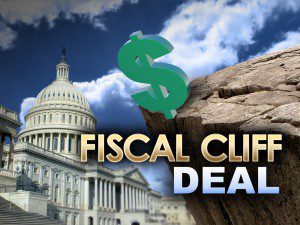
Fiscal Cliff Deal: Doc Cuts Spared
Fiscal Cliff Deal: Doc Cuts Spared. Happy 2013 Fiscal Cliff averted! At least for another year the dreaded 27% Medicare reimbursement have been spared. The so-called “doc fix” would boost the deficit by $31 billion. The President stood firm against any proposed Republican cuts to the Affordable Care Act.
The fear in provider cuts is grounded. According to The Lewin Report Patient Protection and Affordable Care Act (PPACA): Long Term Costs for Governments, Employers, Families and Providers “About half of program costs will be funded with reductions in payments to providers and health plans under the Medicare and Medicaid programs, which the CBO estimates will amount to $498 billion over the ten year period“. The new cost estimate has been updated to $1.4445 trillion from original estimate $938 billion over 10 years.
With millions of new uninsured patients slated to enter the system this would help providers recover reimbursement losses. Additionally, the President was firmly against any Provider cuts in 2013.
The Lewin Report predicts in fact that Provider Reimbursement will recover losses long term and in fact increase gross payments to $129.8 billion under the Act.
“..estimate that utilization of physician services will increase by about $102.7
billion under the Act. This estimate reflects Medicaid the payment levels for the portion of
newly insured people covered under that program and commercial payment levels for those
who become covered under private insurance. As discussed above, our key assumption is that
utilization of services for newly insured people adjusts to the levels reported by insured
individuals with similar age, gender, health status and income characteristics.
Physicians also will be paid for services formerly provided free to uninsured people resulting in
revenues of $8.4 billion. There will be an increase in reimbursement for people who shift from
Medicaid to private coverage, and payment rates for Medicare primary care services will be
increased for a three year period under the Act. These factors will add 18.7 billion in revenues
for physicians.
While there was large Senate consensus 89-8 approval for the American Taxpayer Relief Act the health care debate is far from over. With rising health care costs, combined with the aging of the baby boomers, means the entitlement programs will remain at the heart of the tax-and-spending battles to come.
